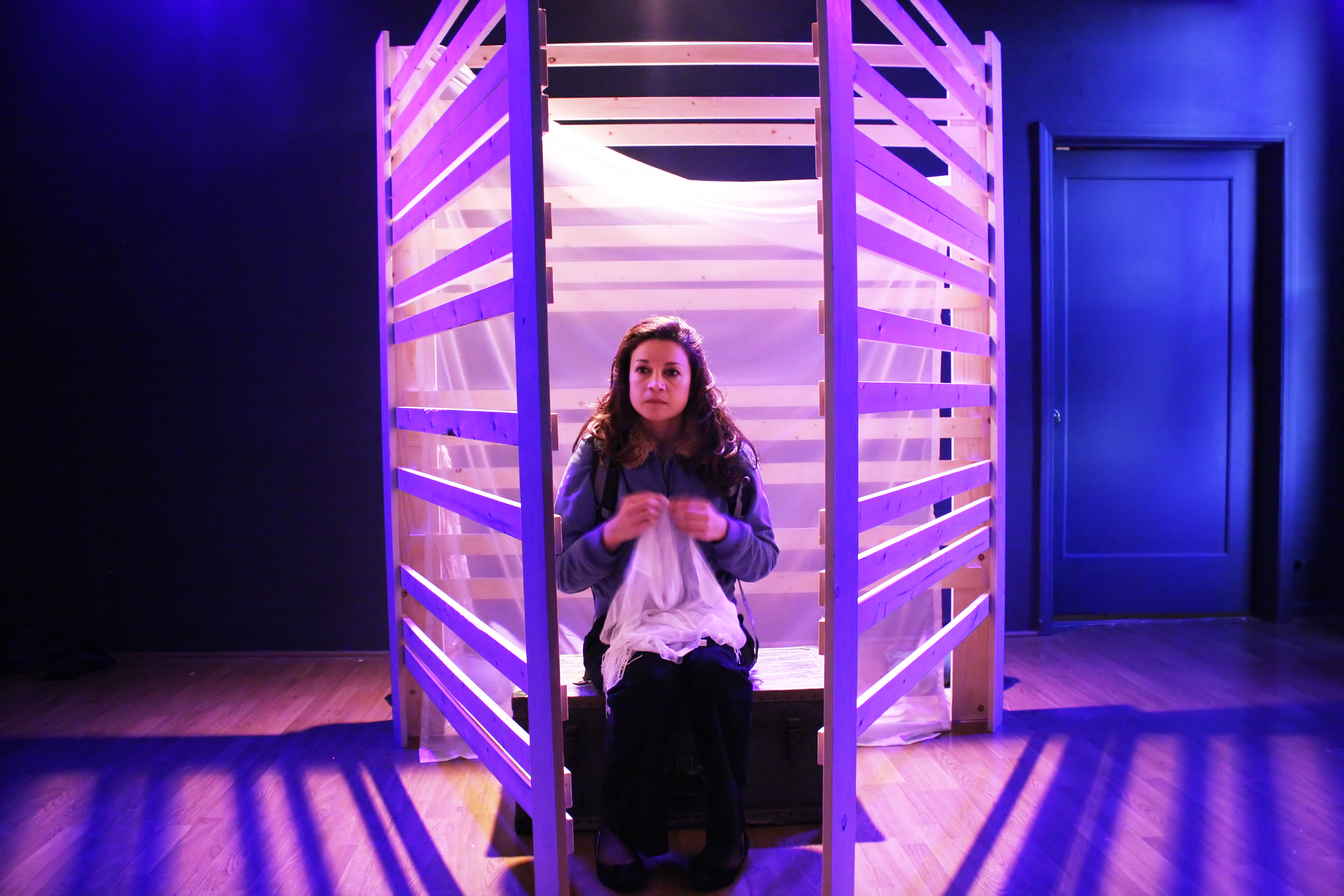Alumna Anna Khaja wins Ovation Award for lead actress in self-written play “˜Shadeed: The Dream and Death of Benazir Bhutto’

UCLA School of Theater, Film and Television alumna Anna Khaja won the 2009-2010 Ovation Award for Lead Actress in a Play. She won for her performance in “Shaheed: The Dream and Death of Benazir Bhutto.”
Courtesy of Maia Rosenfeld
By Andrea Wang
March 29, 2011 1:13 a.m.
Pretending to be someone else takes finesse. Now imagine juggling eight characters in the course of one night.
This past January, UCLA School of Theater, Film and Television alumna Anna Khaja received an Ovation Award for lead actress in her self-written play, “Shaheed: The Dream and Death of Benazir Bhutto.” Though the work marks her first foray into playwriting, Khaja did not say much about its success.
“I went through about 27 disgusting, cheesy drafts that I couldn’t bear to read. Honestly, you know that saying, writing is rewriting ““ it’s true. I learned a really good lesson from that. If you stick with something, it really can change and turn out well,” Khaja said.
Khaja acts solo on the stage, depicting eight characters influenced by Pakistani Prime Minister Bhutto. Each monologue occurs during the moments before Bhutto’s assassination. Khaja has now shared the play with many audiences but strives to keep the performance fresh.
“Every time I perform “˜Shaheed,’ I can’t believe that I’ve ever done it before. You just have to let go and free fall,” Khaja said.
Khaja’s acting methodology relies strongly on being in the moment.
“It doesn’t matter how much emotional or physical range you have. If you don’t have spontaneity, no one considers you a good actor. You know what you’re going to say next, but how you get to the point of saying it and how you say it is improvised,” Khaja said.
Still, some elements required careful planning. Working with director Heather de Michele, Khaja perfected the flow of the story, incorporating smooth onstage set and costume changes. De Michele reminisced about the audience’s reaction after a show during their first run.
“When (Khaja) left the stage, no one left the theater. Not one person got up to leave. Everyone wanted to stay and talk about Benazir Bhutto, Pakistan ““ the whole experience of the play went on for another hour. … It created a dialogue. That’s one thing that you don’t get often enough in theater,” de Michele said.
Khaja had researched Bhutto extensively, and eventually found producer Luis Reyes through serendipity. Meeting at a Monday night reading series, Khaja reconnected with the fellow TFT graduate over Bhutto.
“We think that Benazir Bhutto is a fascinating woman. She was fascinating while she was alive, and now near mythical now that she’s gone. She wasn’t a perfect woman, but I think what she shows more than anything else is the duality of politicians,” Reyes said.
Khaja has known she wanted to be an actress since the age of 4 or 5. She said she credits much of her growth as an actress to her education at UCLA.
“My time at UCLA was really important. You have to learn someone else’s rules to learn who you are, and then you have to make your own,” Khaja said.
Now governing her own acting style, Khaja said she stresses the importance of independence because acting lacks the security and stability of a 9-to-5 job. She perseveres, working both on stage and in front of a camera. Khaja has played roles in numerous films and television shows, including Jim Carrey’s mail-order bride Faranoush from the movie “Yes Man.”
Born of a Pakistani and Latina heritage, Khaja is not discouraged about frequenting those roles in film.
“I’ve played a lot of women in headscarves. Typecasting happens, but at the same time I understand. You have to play the game,” Khaja said.
For Khaja, the limitations are her freedom. Once boundaries of, say, a headscarf are established, she said she can fully explore other aspects of the character.
In May, Khaja will again don a headscarf to premiere “No Word in Guyanese for Me,” where she will play a woman balancing the intricacies of her homosexuality and Islamic background.
“Every woman in a headscarf is not the same woman. There are a thousand variations … of an Arab woman,” Khaja said.


